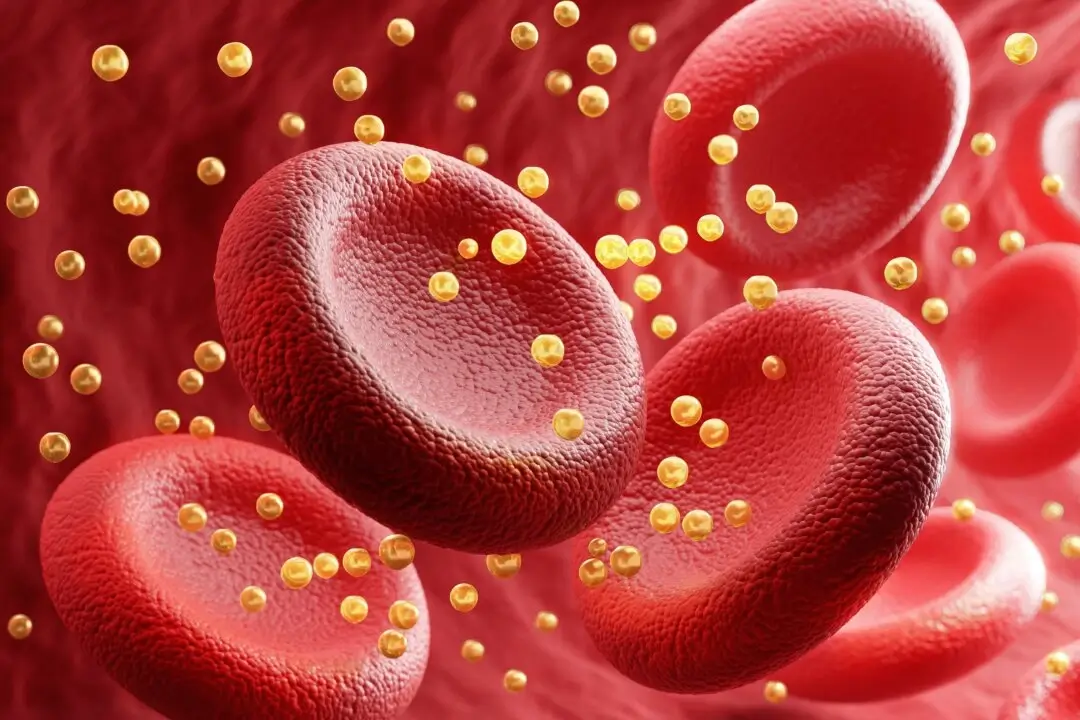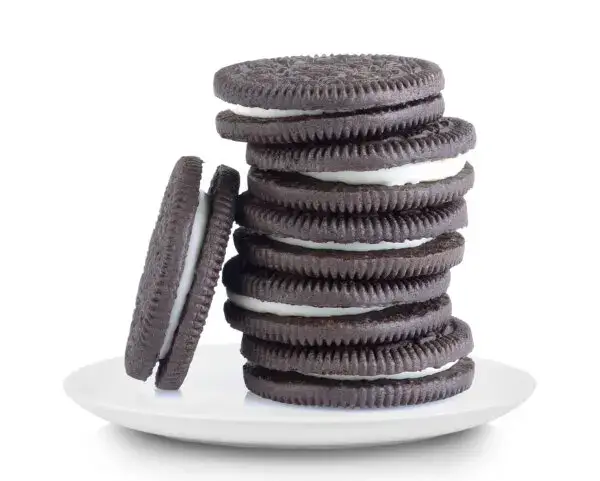
Harvard Scientist Stunned: Oreos Surpass Statins In Lowering His Cholesterol
In a very specific experiment, Oreo cookies were shown to outperform traditional cholesterol medication in lowering cholesterol.
By: Sheramy Tsai | The Epoch Times
Nicholas Norwitz, a Harvard medical student who holds a doctorate in metabolism and nutrition from the University of Oxford, has explored uncharted territory in cholesterol management through an innovative experiment.
Central to his study is an ambitious goal—to validate the Lipid Energy Model—a theory poised to transform our comprehension of human metabolism, especially in terms of fat or “lipid” metabolism. He investigates the contrasting impacts of Oreo cookies and statins on cholesterol levels.
Within the esteemed environments of Harvard and Oxford, the 28-year-old researcher faces the daunting challenge of being a “little fish with a big idea.” He aims to make a substantial scientific contribution while operating without the backing of multimillion-dollar grants.
“Everyone knows the feeling of being so engrossed by a question that it occupies your mind. What do you do when that question challenges everything you’ve been taught? For me, that’s the essence of this experiment,” he told The Epoch Times, highlighting the motivation driving his research.
Understanding Cholesterol
Cholesterol is a term that often ignites passionate debates in health care. Viewed by many as a primary factor in heart disease, it is also acknowledged as an essential component critical for bodily functions.
Central to this discussion is LDL-C, or low-density lipoprotein cholesterol, commonly labelled as “bad” cholesterol. LDL is not cholesterol itself, but its transporter. LDL particles are like a delivery truck circulating fat fuel and cellular building blocks throughout the body.
Traditionally, medical professionals have linked an excess of LDL “trucks” to arterial plaque accumulation, elevating heart attack and stroke risks. Given that nearly 94 million U.S. adults suffer from high cholesterol, its prevalence is undeniable.
In the American Medical Association (AMA) series, “What Doctors Wish Patients Knew,” Kate Kirley, a family physician and AMA director of chronic disease prevention, debunks a prevalent cholesterol myth, “The amount of cholesterol that you eat, doesn’t actually impact your own cholesterol very much,” she explains. Dr. Kirley underlines that the body’s cholesterol production is mostly separate from dietary cholesterol, countering a common misconception.
The battle against high LDL-C has long been fought with statins—drugs that cut down cholesterol production in the liver. As of 2021, the global statins market was estimated at around $15 billion and is expected to reach $22 billion by 2032.
The Crisis In The Red Sea Threatens To Disrupt Global Supply Chains Even More Than The Pandemic Did
Oreos vs. Statins In LMHR Cholesterol Management
Imagine lowering your cholesterol with Oreos instead of medication. This was the core of Mr. Norwitz’s experiment. He investigated whether incorporating Oreo cookies into his low-carb, ketogenic diet could decrease LDL-C levels, comparing this to the effects of conventional statin drugs.
His study illuminates the “lean mass hyper-responder” phenomenon, a condition observed in specific individuals on low-carb diets who experience a dramatic escalation in cholesterol levels, with LDL-C occasionally reaching 500–600 mg/dl. This rise is often accompanied by elevated high-density lipoprotein (HDL) cholesterol and diminished triglycerides.
Dr. William Cromwell, a seasoned lipidologist, elaborates on this unique dietary group to The Epoch Times, stating, “This case study adds to our understanding of an atypical group of people—lean individuals who have a substantial increase in LDL cholesterol on a ketogenic/very low-carb diet. The combination of very high LDL-C, high HDL cholesterol, and low triglycerides has been called the ‘lean mass hyper-responder’ (LMHR) phenotype.” These traits craft a distinctive lipid profile that, while rare in the general population, is relatively prevalent among lean individuals on low-carb diets.
The rationale for this phenotype originates from the Lipid Energy Model (LEM). This model proposes that reduced carbohydrate intake changes the way fats are processed, which may influence cholesterol levels in those otherwise metabolically healthy.
For lean people, cutting down on carbs means their bodies use more fat for energy. This change primarily happens in the liver, which sends out more very-low-density lipoprotein (VLDL), a type of particle that carries fats in our blood. Once these VLDL particles deliver their fat cargo, they become LDL-C (the so-called “bad” cholesterol) and HDL-C (the “good” cholesterol). This process explains why LDL-C and HDL-C levels can rise while triglycerides (another type of fat) drop in these individuals.
Mr. Norwitz explained, “Based on the lipid energy model, adding back carbs and repleting the store of glycogen in the liver should bring LDL-C back down in a lean-mass hyper-responder.” His study suggests that the carbohydrate source, whether bananas, potatoes, or even Oreo cookies, can substantially decrease LDL cholesterol.
The Experiment
In this dietary trial, Mr. Norwitz adhered to his typical ketogenic diet, low in carbohydrates (20 grams per day). Subsequently, he introduced a unique variable—eating 12 Oreo cookies daily for 16 days, adding 100 grams of carbohydrates. During this phase, he maintained ketosis with ketone supplements, ruling out ketosis as a factor for any increase in his LDL-C.Mr.

After a three-month break, or “washout,” to reset his weight and health markers to their original state, he embarked on the second phase of the experiment. This time, he took 20 mg of rosuvastatin daily for six weeks, a statin drug used for lowering cholesterol, all while sticking to his ketogenic diet.
The results were striking. Initially, Mr. Norwitz’s LDL-C level was 384 mg/dl. After the Oreo supplementation, it plummeted to 111 mg/dl, marking a 71% reduction. After the break, LDL-C levels rose to 421 mg/dl but were only reduced to 284 mg/dl—a 32.5% reduction—on statin therapy.
“The results in this case study are consistent with changes expected from the LEM and demonstrate the potential for substantial and rapid LDL cholesterol lowering by increasing dietary carbohydrates in selected individuals,” Dr. Cromwell explained.
“This study is helpful for lean individuals who experience a significant increase in LDL cholesterol on a ketogenic/low-carb diet,” Dr. Cromwell asserts. “For such people, diet modification (increasing carbohydrates) rather than medications should be considered as the first line of treatment if LDL lowering is needed.”
The study is meant to be a head-turner. New research reveals that low body mass index—not saturated fat—is a key factor in the sharp rise of LDL cholesterol for those on low-carb diets. This insight, supported by top-level evidence, challenges previous beliefs and points to leaner body mass—rather than dietary fat—as the primary driver behind the “lean mass hyper-responder” phenomenon.
Unproven Hypothesis: Constraints of The Oreo Experiment
While Mr. Norwitz’s experiment has garnered interest, acknowledging its limitations is vital. The study reflects the singular experience of Mr. Norwitz, who is uniquely categorized as a lean mass hyper-responder. The results of his experiment can’t be broadly applied to the general population.
“This was a metabolic demonstration. I sincerely hope nobody takes this to mean Oreos are good for heart health,” Mr. Norwitz explained. “Nevertheless, the experiment raises an uncomfortable implicit question about the consequences … and I love uncomfortable questions in science.”
The core concept of Mr. Norwitz’s study, the Lipid Energy Model, is an evolving model yet to gain full scientific consensus. It sheds light on how low-carb diets may influence cholesterol levels in particular instances like LMHRs but does not account for all variables influencing LDL cholesterol across different diets and populations. “It’s not meant to be all-encompassing,” explains Mr. Norwitz. “No models are complete, but some are useful.”
The hope, however, is that Mr. Norwitz’s approach will turn heads and inspire further research. By spotlighting the LMHR phenotype and the complex dynamics of human lipid metabolism, this study may pave the way for more detailed investigations. Such research could lead to a better understanding of dietary impacts on health, potentially transforming personalized nutrition and medical treatment.
Curiosity In Medicine: Challenging The Status Quo
The pursuit of knowledge in academic medicine frequently encounters significant hurdles, notably in securing funding. Many studies are backed by the pharmaceutical and food industries, which can sometimes lead to a conflict of interest, especially when research might contradict their agendas. For independent researchers, finding support for unconventional research can be a daunting task.
“I think funding is the greatest hurdle in conducting this type of research,” states Dr. Cromwell.
Mr. Norwitz’s unique study stands as a deliberate attempt to spotlight his idea around the Lipid Energy Model. He emphasizes that the use of Oreo cookies in his study is not an endorsement of them as a health food or a cholesterol-lowering strategy for the general public. Instead, his experiment with Oreos serves as a creative method to highlight and generate interest in his ongoing research.
“I’m in an environment surrounded by the world’s top experts. How could I see something they don’t? How can I pursue this question without the established academic muscle or the funding to make a large-scale experiment happen?” Mr. Norwitz’s questions highlight the challenges faced by researchers with innovative ideas but limited resources.
This experiment is more than just a scientific inquiry—it’s a call to ignite curiosity within the medical field. Mr. Norwitz aims to bring attention to a model that could revolutionize our understanding of cholesterol management for the general population. “What I want people to walk away with is a feeling of curiosity,” he says. “One of the greatest pleasures in life is when reality defies your expectations, and you’re like an infant seeing the world anew.”
In an arena frequently influenced by industry-sponsored studies, Mr. Norwitz’s research underscores the value of independent investigation and the role of curiosity in propelling medical science forward. His efforts highlight the necessity for varied sources of research funding, promoting an expansive examination of concepts that may profoundly impact public health.
* * *
NEXT UP!
Can A Dental Infection Cause A Massive Heart Attack?
For literally hundreds of years now, the idea that a dental infection could seed, initiate, and promote virtually all chronic degenerative diseases has been hotly debated in the medical and dental communities, often with much more passion and hyperbole than with science.
This “debate” continues today, and nothing encapsulates this focal infection link between the mouth and the body better than the root canal-treated tooth. And while the root canal-treated tooth is certainly not the only significant source of dental infection and toxicity, it is easily the most devastating one—as you will soon see.
Conventional Dentistry Refuses to Inform Patients about the Risk of a Dental Infection from a Root Canal Procedure
The “success” of a root canal-treated tooth for a given individual depends on the goal of the root canal procedure. If the goal of a root canal procedure is to retain a pain-free natural tooth for both esthetic and chewing function, then the root canal procedure is frequently “successful.”
* * *
READ MORE: Brisk Walking May Help Cut Diabetes Risk by Nearly 40%
Awareness! 7 Reasons To Abandon Your Comfort Zone & Why You’ll Never Regret It
Telegram: Stay connected and get the latest updates by following us on Telegram!
We’d love to hear from you! If you have a comment about this article or if you have a tip for a future Collective Spark Story please let us know below in the comment section.
